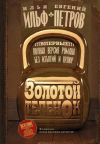Текст книги "Финансист / The Financier"

Автор книги: Теодор Драйзер
Жанр: Иностранные языки, Наука и Образование
Возрастные ограничения: +16
сообщить о неприемлемом содержимом
Текущая страница: 4 (всего у книги 16 страниц)
Chapter XII
Butler liked Cowperwood very much, and Cowperwood liked this great solid Irishman. He liked his history. He had met Mrs. Butler, a rather fat and phlegmatic Irish woman, who still liked to go into the kitchen and superintend the cooking. He had met Owen and Callum Butler, the boys, and Aileen and Norah, the girls. Aileen was the one who had bounded up the steps the first day he had called at the Butler house.
There was a cozy fire burning in Butler's office when Cowperwood called. Spring was coming on, but the evenings were cool. The older man invited Cowperwood to make himself comfortable in one of the large leather chairs before the fire and then proceeded to listen.
“How much of the loan do you want?”
“Five million.”
“Five million!” Butler sat up. “Man, what are you talking about? That's a good deal of money. Where are you going to sell all that?”
“I want to bid for five million,” assuaged Cowperwood, softly. “I only want one million but I want the prestige for five million. It will do me good on the street.”
Butler sank back somewhat relieved.
“Five million! Prestige! You want one million. Well, now, that's different. That's not such a bad idea.”
He rubbed his chin some more and stared into the fire.
A few days later Frank was introduced to City Treasurer Julian Bode[46]46
Julian Bode – Джулиан Боуд
[Закрыть], who promised to introduce him to State Treasurer Van Nostrand.[47]47
Van Nostrand – Вэн Нострэнд
[Закрыть]
“Of course, you know,” he said to Cowperwood, in the presence of Butler, “this banking crowd is very powerful. You know who they are. You may have trouble right here in Philadelphia—they're pretty powerful, you know. Are you sure just where you can place the money?”
“Yes, I'm sure,” replied Cowperwood.
“Well, the best thing in my judgment is not to say anything at all. We can fix the governor, I think. After you get it they may talk to you personally, but that's your business.”
Cowperwood smiled his inscrutable smile. This financial life was an endless network of underground holes, along which all sorts of influences were moving. A little wit, a little nimbleness, a little luck-time and opportunity—these sometimes availed.
He figured to make twenty thousand dollars. If he did, he was going to buy a house on Girard Avenue beyond the Butlers', or, better yet, buy a piece of ground and erect one. His father was prospering nicely. He might want to build a house next to him, and they could live side by side. His street-car investments were paying six per cent. His wife's property, represented by this house, some government bonds, and some real estate in West Philadelphia amounted to forty thousand more. They were rich; but he expected to be much richer. All he needed now was to keep cool. If he succeeded in this bond-issue matter, he could do it again and on a larger scale. There would be more issues.
He went into his wife's boudoir, where she was sleeping. The nurse and the children were in a room beyond.
“Well, Lillian,” he observed, when she awoke, “I think I have that bond matter that I was telling you about arranged at last. I think I'll get a million of it, anyhow. That'll mean twenty thousand. If I do we'll build out on Girard Avenue.”
“That'll be fine, Frank!” she observed, and rubbed his arm as he sat on the side of the bed.
“We'll have to show the Butlers some attention. He's been very nice to me and he's going to be useful—I can see that. He asked me to bring you over some time. We must go. Be nice to his wife. He can do a lot for me if he wants to. He has two daughters, too. We'll have to have them over here.”
“I'll have them to dinner sometime,” she agreed cheerfully and helpfully.
“Butler himself is a very presentable man,” Cowperwood remarked, “but Mrs. Butler—well, she's all right, but… Anyway, she's a fine woman, though, I think, good-natured and good-hearted.”
He cautioned her not to overlook Aileen and Norah, because the Butlers, mother and father, were very proud of them.
Mrs. Cowperwood at this time was thirty-two years old; Cowperwood twenty-seven. The birth and care of two children had made some difference in her looks. She was no longer as softly pleasing, more angular. Her face was hollow-cheeked. Her health was really not as good as it had been—the care of two children and a late undiagnosed tendency toward gastritis having reduced her. In short she was nervous and suffered from depression. Cowperwood had noticed this. He tried to be gentle and considerate, but he was too much of a utilitarian and practical-minded observer not to realize that he was likely to have a sickly wife on his hands later. Sympathy and affection were great things, but desire and charm must endure. So often now he saw young girls who were exceedingly robust and joyous. It was fine, advisable, practical, to adhere to the virtues, but if you had a sickly wife—And anyhow, was a man entitled to only one wife? Must he never look at another woman? Supposing he found someone? He pondered those things between hours of labor, and concluded that it did not make so much difference. If a man could, and not be exposed, it was all right. He had to be careful, though. Tonight, as he sat on the side of his wife's bed, he was thinking somewhat of this, for he had seen Aileen Butler again, playing and singing at her piano as he passed the parlor door. She was like a bright bird radiating health and enthusiasm.
“It's a strange world,” he thought.
The bond issue, when it came, was curious; for, although he got his twenty thousand dollars and more and served to introduce him to the financial notice of Philadelphia and the State of Pennsylvania, it did not permit him to manipulate the subscriptions as he had planned. The State treasurer was gracious to Cowperwood and explained to him just how things were regulated. The big men might constitute a corporation, which in itself was unfair; but, after all, they were the legitimate sponsors for big money loans of this kind. Seeing that Mr. Cowperwood was able to dispose of the million he expected to get, it would be all right to award it to him; but Van Nostrand had a counter-proposition to make. Would Cowperwood turn over his award to them for a consideration? Certain financiers desired this. It was dangerous to oppose them. They desired to handle the twenty-three million dollars in an unbroken lot. It looked better.
Cowperwood acquiesced. They were quite well aware of him! He would take the award and twenty thousand and withdraw. The State treasurer was delighted.
“I'm glad to have seen you,” he said. “I'm glad we've met. We'll have lunch together some time.”
The State treasurer felt that Mr. Cowperwood was a man who could make him some money. He told the governor and some other about Frank.
So the award was finally made. Cowperwood was introduced to the governor one day at lunch. His name was mentioned in the papers, and his prestige grew rapidly.
Immediately he began working on plans with young Ellsworth for his new house. He was going to build something exceptional, he told Lillian. Frank consulted with his father and found that he also was willing to move. The directors of the bank were becoming much more friendly to the old man. Next year President Kugel was going to retire. So he was going to be made president. Frank was a large borrower from his father's bank. And he was a large depositor. His connection with Edward Butler was significant. The two families were now on the best of terms. Anna, now twenty-one, and Edward and Joseph frequently spent the night at Frank's house. It was thought well to build side by side. So Cowperwood, Sr., bought fifty feet of ground next to his son's thirty-five, and together they commenced the erection of two charming, commodious homes.
Frank planned at the same time to remove his office farther south on Third Street and occupy a building of his own. He was to be rich, very, very rich.
Chapter XIII
The months proceeded apace. The Butlers and the Cowperwoods had become quite friendly. Mrs. Butler rather liked Lillian, though they were of different religious beliefs; and they went driving or shopping together, the younger woman a little critical and ashamed of the elder because of her poor grammar, her Irish accent, her plebeian tastes—as though the Wiggins had not been as plebeian as any. On the other hand the old lady, as she was compelled to admit, was good-natured and good-hearted. She loved to sent presents here and there to Lillian, the children, and others.
But Aileen, her airs, her aggressive disposition, her love of attention, her vanity, irritated and at times disgusted Mrs. Cowperwood. She was eighteen now, with a figure which was subtly provocative. Her manner was boyish, hoydenish at times. But there was a softness lurking in her blue eyes that was most sympathetic and human.
Catholic school had been the choice of her parents for her education—what they called a good Catholic education. She had learned the theory and forms of the Catholic ritual, but she could not understand them. The church, with its tall, dimly radiant windows, its high, white altar, its figure of St. Joseph on one side and the Virgin Mary on the other, had impressed her greatly.
It would scarcely be fair to describe Aileen's nature as being definitely sensual at this time. It was too rudimentary. Hell did not frighten her.
“That Miss Butler,” once observed Sister Constantia, “is a very spirited girl, you may have a great deal of trouble with her.”
Cowperwood met Aileen at various times, shopping with her mother, out driving with her father, and he was always interested and amused at the tone she assumed before him—the “Oh, dear! Oh, dear!” She was a girl with a high sense of life. She was romantic, full of the thought of love and its possibilities. The thought came to him that some lucky young fellow would marry her pretty soon and carry her away.
“The little snip thinks the sun rises and sets in her father's pocket,” Lillian observed one day to her husband. “To hear her talk, you'd think they were descended from Irish kings. Her pretended interest in art and music amuses me.”
“Oh, don't be too hard on her,” coaxed Cowperwood diplomatically. He already liked Aileen very much. “She plays very well, and she has a good voice.”
“Yes, I know; but she has no real refinement. How could she have? Look at her father and mother.”
“She's bright and good-looking,” insisted Cowperwood. “Of course, she's only a girl. She isn't without sense and force.”
Aileen, as he knew, was most friendly to him. She liked him. She would play the piano and sing for him in his home, and she sang only when he was there. In spite of her vanity and egotism, she felt a little overawed before him at times. She seemed to grow gayer and more brilliant in his presence.
Aileen Butler was decidedly attractive, from the point of view of Frank Cowperwood. Vitality and vivacity. No other woman or girl whom he had ever known had possessed so much innate force as she. She had a beautiful nose, and eyes that were big and sensuous. Healthy and vigorous, she was interested in men—what they would think of her—and how she compared with other women.
Wealth and advantage gripped her; and when she sat at the piano and played or rode in her carriage or walked or stood before her mirror, she was conscious of her figure, her charms, what they meant to men, how women envied her. Sometimes she looked at poor girls and felt sorry for them. She wanted a man. Now and then there was one “something like,” but not entirely, who appealed to her, but most of them were politicians or legislators, acquaintances of her father, and socially nothing at all—and so they wearied and disappointed her. Her father did not know the truly elite. But Mr. Cowperwood—he seemed so refined, so forceful, and so reserved. She often looked at Mrs. Cowperwood and thought how fortunate she was.
Chapter XIV
The development of Cowperwood & Co. finally brought Frank into relationship with one man who was to play an important part in his life, morally, financially, and in other ways. This was George W. Stener[48]48
George W. Stener – Джордж У. Стинер
[Закрыть], the new city treasurer, who was a puppet in the hands of other men, but who became a personage of considerable importance, for the simple reason that he was weak. He was one of those men, of whom there are so many thousands in every large community, with no breadth of vision, no real subtlety, no craft, no great skill in anything. You would never hear a new idea emanating from Stener. He never had one in his life. On the other hand, he was not a bad fellow. His eye was of vague gray-blue; his hair a dusty light-brown and thin. His mouth—there was nothing impressive there. He was quite tall, nearly six feet, with moderately broad shoulders.
In Philadelphia at this time a certain United States Senator, Mark Simpson[49]49
Mark Simpson – Марк Симпсон
[Закрыть], together with Edward Malia Butler and Henry A. Mollenhauer[50]50
Henry A. Mollenhauer – Генри А. Молленхауэр
[Закрыть], a rich coal dealer and investor, controlled jointly the political destiny of the city. They had representatives, benchmen, spies, tools—a great company. Among them was this Stener—a minute cog in the silent machinery of their affairs.
Cowperwood, in approaching Edward Malia Butler, had been unconsciously let in on this atmosphere of erratic and unsatisfactory speculation without really knowing it. When he had left the office of Tighe & Co., seven years before, it was with the idea that henceforth and forever he would have nothing to do with the stock-brokerage proposition; but now behold him back in it again, with more vim than he had ever displayed, for now he was working for himself, the firm of Cowperwood & Co., and he was eager to satisfy the world of new and powerful individuals who were drifting to him. All had money. All had information, and they wanted him to carry certain lines of stock on margin for them, because he was known to other political men, and because he was safe. And this was true. He was not, or at least up to this time had not been, a speculator or a gambler on his own account. But now here was George W. Stener with a proposition which was not quite the same thing as stock-gambling, and yet it was.
In order to get the full advantage the large banker must be an “inside banker,” one close to the political forces of the city, for if he was not and needed money and he carried his warrants to the city treasurer, he would find that he could not get cash for them. This meant, of course, an illegal interest drain on the city, but that was all right also. “No funds” could cover that. The general public did not know. The newspapers were not vigilant, being pro-political. There were no persistent, enthusiastic reformers who obtained any political credence.
In order to clear up the outstanding indebtedness, it was decided that the city must issue a loan, say for two million dollars. The certificates of loan were then to be sold in the open market, and the money so obtained used to take up the long-outstanding warrants which were now such a subject of public comment.
It is obvious that this was merely a case of robbing Peter to pay Paul. It was the intention of the schemers to make it possible for the financial politicians to reap the same old harvest by allowing the certificates to be sold to the right parties. The war was just over. Investors could get more than six per cent. The only way this could be done would be to have some broker who knew the subtleties of the stock market handle this new city loan on 'change in such a way that it would be made and to be sold to outsiders.
George W. Stener, entering as city treasurer at this time, and bringing no special financial intelligence to the proposition, was really troubled. Henry A. Mollenhauer, one of the men who had gathered up a large amount of the old city warrants, and who now wanted his money, called on Stener, and also on the mayor. He with Simpson and Butler made up the Big Three[51]51
the Big Three – «Большая тройка»
[Закрыть].
“I think something ought to be done about these warrants,” he explained. “I am carrying a large amount of them, and there are others. We have helped the city a long time by saying nothing; but now I think that something ought to be done. Mr. Butler and Mr. Simpson feel the same way. Couldn't these new loan certificates be listed on the stock exchange and the money raised that way? We need some clever broker.”
So it was that Cowperwood was called to Stener's office. And there he realized at once that he had a financial baby to deal with. If he could act as adviser to this man—be his sole counsel!
“How do you do, Mr. Stener?” he said in his soft, ingratiating voice. “I am glad to meet you. I have heard of you before, of course.”
Stener was long in explaining to Cowperwood just what his difficulty was.
“The main thing, as I see it, is to make these certificates sell. I can issue them in any sized lots you like, and as often as you like. I want to get enough now, and as much more as I can get later.”
Cowperwood felt like a physician feeling a patient's pulse—a patient who is really not sick at all but the reassurance of whom means a fee. The abstrusities of the stock exchange were clear to him. Wisely enough he sensed that there was politics in all this—shrewder and bigger men above and behind Stener. But what of that?
“I tell you what I'd like to do, Mr. Stener,” he said, after he had listened to his explanation and asked how much of the city loan he would like to sell during the coming year. “I'll be glad to undertake it. But I'd like to have a day or two in which to think it over.”
“Why, certainly, certainly, Mr. Cowperwood,” replied Stener, genially. “That's all right. Take your time. If you know how it can be done, just show me when you're ready. By the way, what do you charge?”
“Well, the stock exchange has a regular scale of charges which we brokers are compelled to observe. Of course, I may have to add a lot of fictitious selling—I'll explain that to you later—but I won't charge you anything for that so long as it is a secret between us. I'll give you the best service I can, Mr. Stener. You can depend on that. Let me have a day or two to think it over, though.”
He shook hands with Stener, and they parted.
Chapter XV
The plan Cowperwood developed after a few days' meditation will be plain enough to anyone who knows anything of commercial and financial manipulation, but a dark secret to those who do not. In the first place, the city treasurer was to use his (Cowperwood's) office as a bank of deposit. He was to turn over to him, actually, or set over to his credit on the city's books, subject to his order, certain amounts of city loans—two hundred thousand dollars at first, since that was the amount it was desired to raise quickly—and he would then go into the market and see what could be done. The city treasurer was to ask leave of the stock exchange at once to have it listed as a security. Cowperwood would then use his influence to have this application acted upon quickly. Stener was then to dispose of all city loan certificates through him, and him only. And so on.
Dark as this transaction may seem to the uninitiated, it will appear quite clear to those who know. Manipulative tricks have always been worked in connection with stocks of which one man or one set of men has had complete control. Cowperwood was one of the first and one of the youngest to see how it could be done. When he first talked to Stener he was twenty-eight years of age. When he last did business with him he was thirty-four.
The houses and the bank-front of Cowperwood & Co. had been proceeding apace. One had a sense of reserve and taste pervading the place, and yet it was also inestimably prosperous, solid and assuring. Cowperwood, when he viewed it at its completion, complimented Ellsworth cheerily.
“I like this. It is really beautiful. It will be a pleasure to work here.”
“Wait till you see them. I think you will be pleased, Mr. Cowperwood. I am taking especial pains with your house because it is smaller. It is really easier to treat your father's.”
When the houses were finished, they were effective and arresting—quite different from the conventional residences of the street. The most striking features were deep-recessed doorways under wide, low, slightly floriated arches, and three projecting windows of rich form, one on the second floor of Frank's house, two on the facade of his father's.
On the ground floor of each house was placed a conservatory of flowers, facing each other, and in the yard, which was jointly used, a pool of white marble eight feet in diameter, with a marble Cupid upon which jets of water played. The yard which was enclosed by a high wall of green-gray brick. The two houses, as originally planned, were connected by a low, green-columned pergola which could be enclosed in glass in winter.
The sight of his new house made Cowperwood feel of more weight in the world, and the possession of his suddenly achieved connection with the city treasurer was as though a wide door had been thrown open to the fields of opportunity. He told Mrs. Cowperwood that he intended to buy her a victoria—as the low, open, four-wheeled coach was then known—as soon as they were well settled in their new home, and that they were to go out more. Together with Anna, his sister, and his two brothers, Joseph and Edward, they could use the two houses jointly.
Правообладателям!
Это произведение, предположительно, находится в статусе 'public domain'. Если это не так и размещение материала нарушает чьи-либо права, то сообщите нам об этом.








































